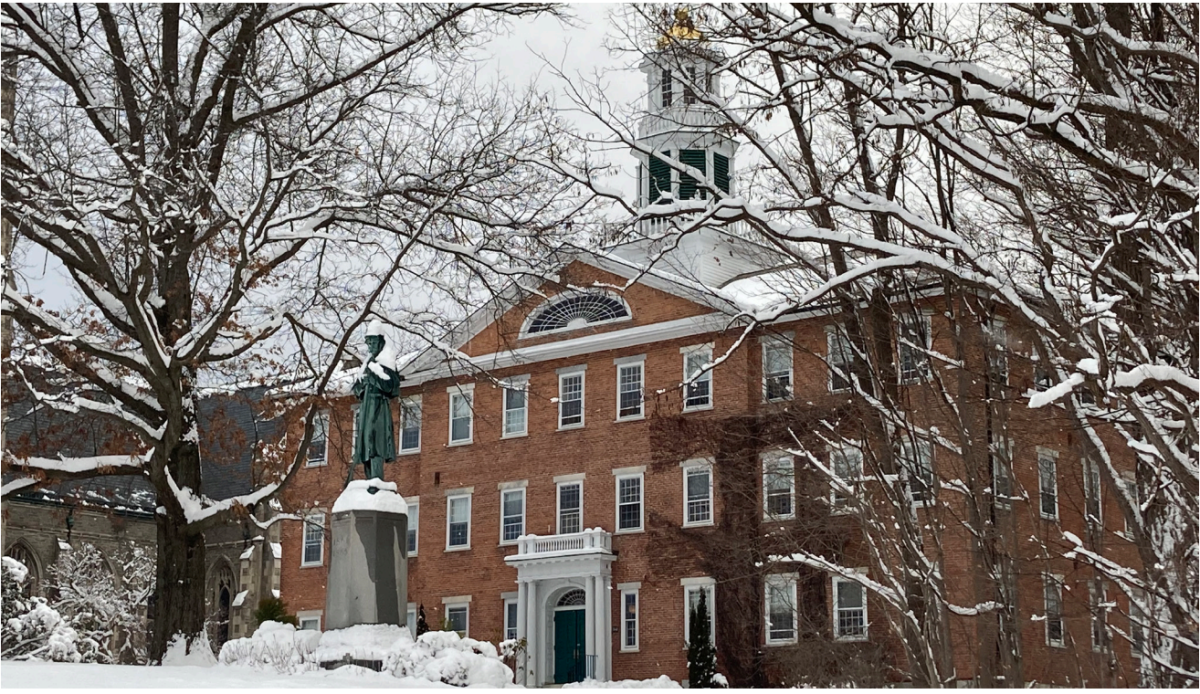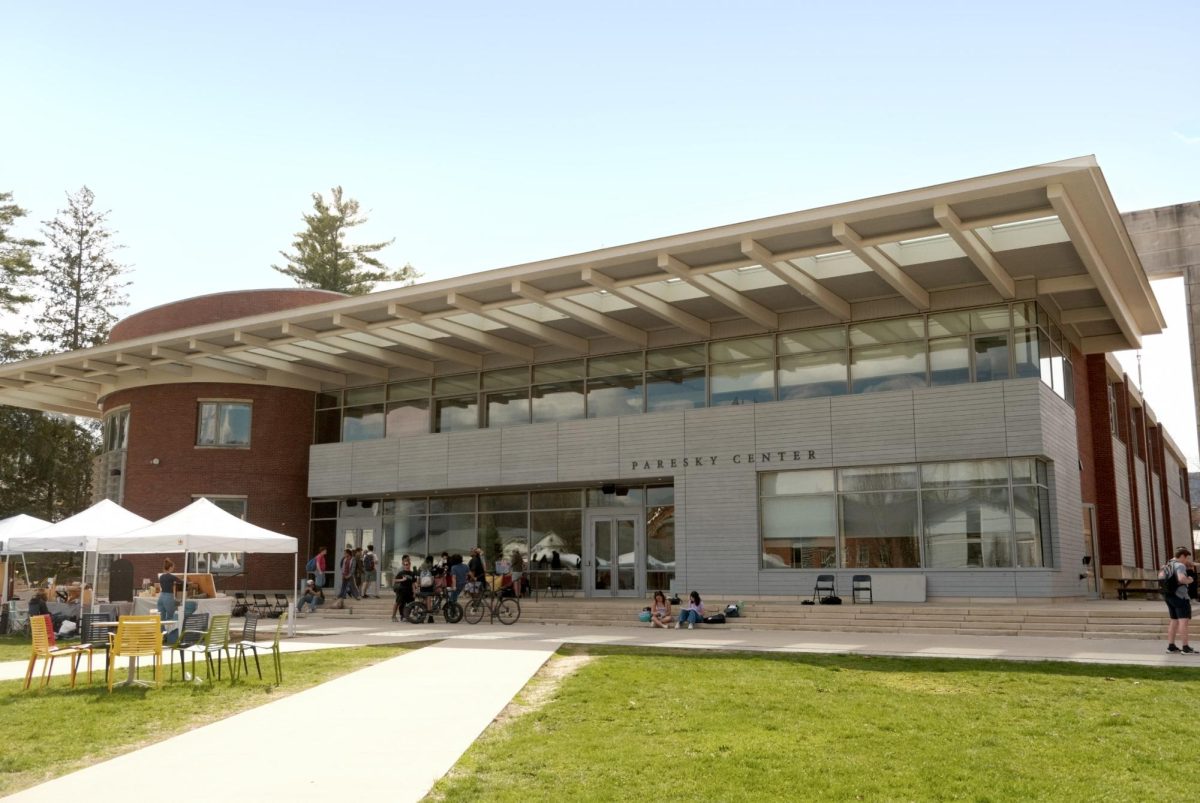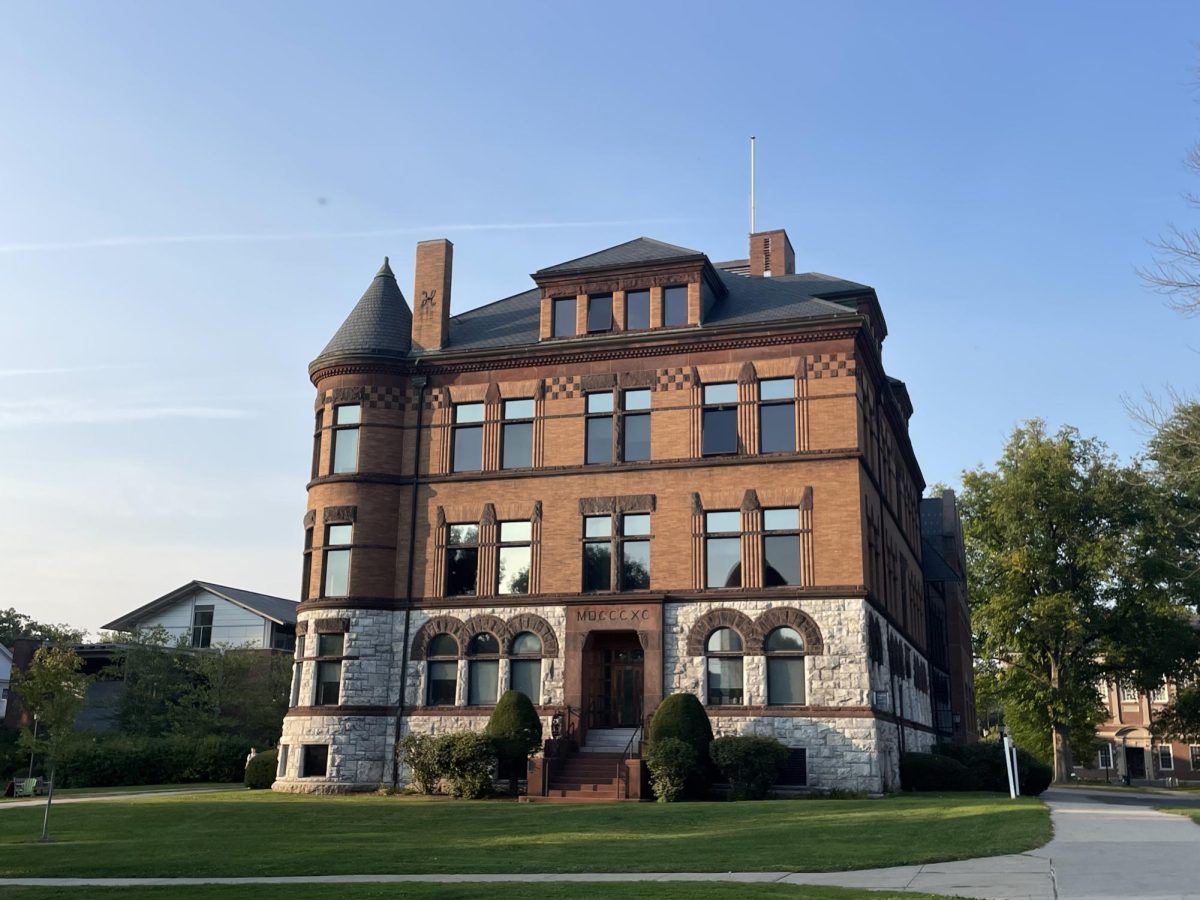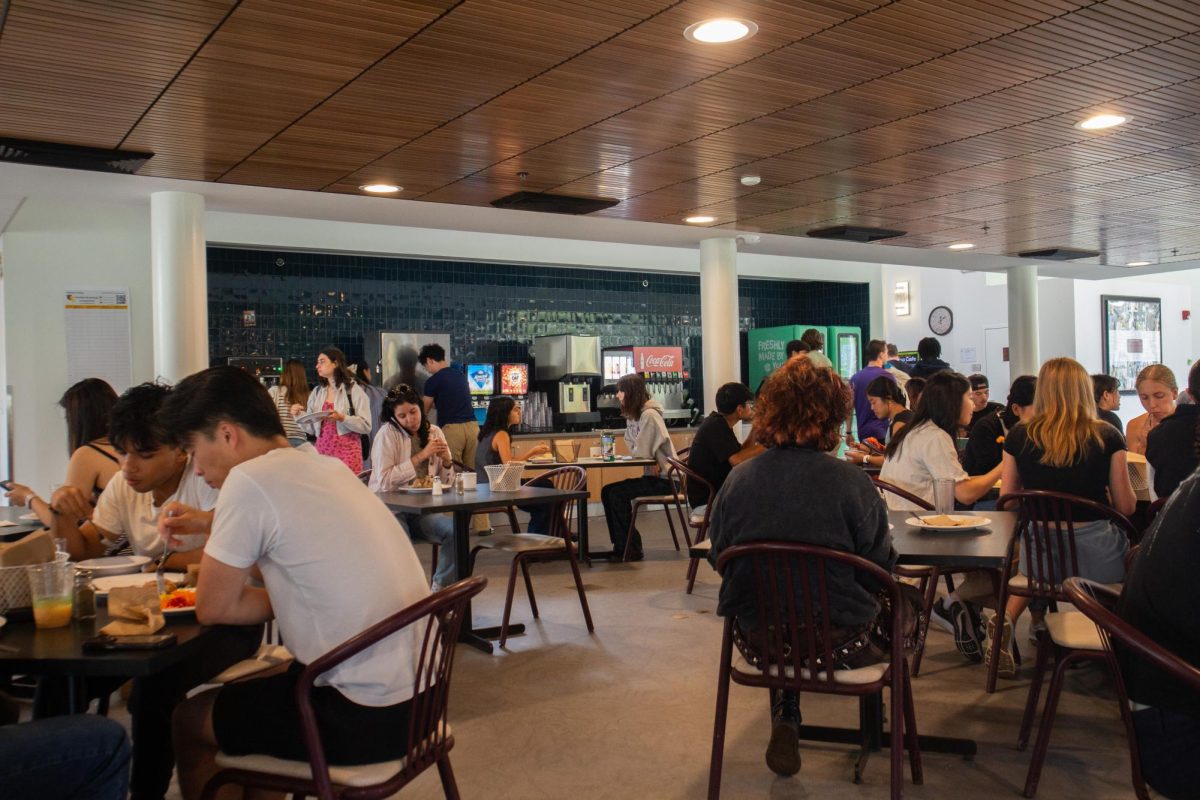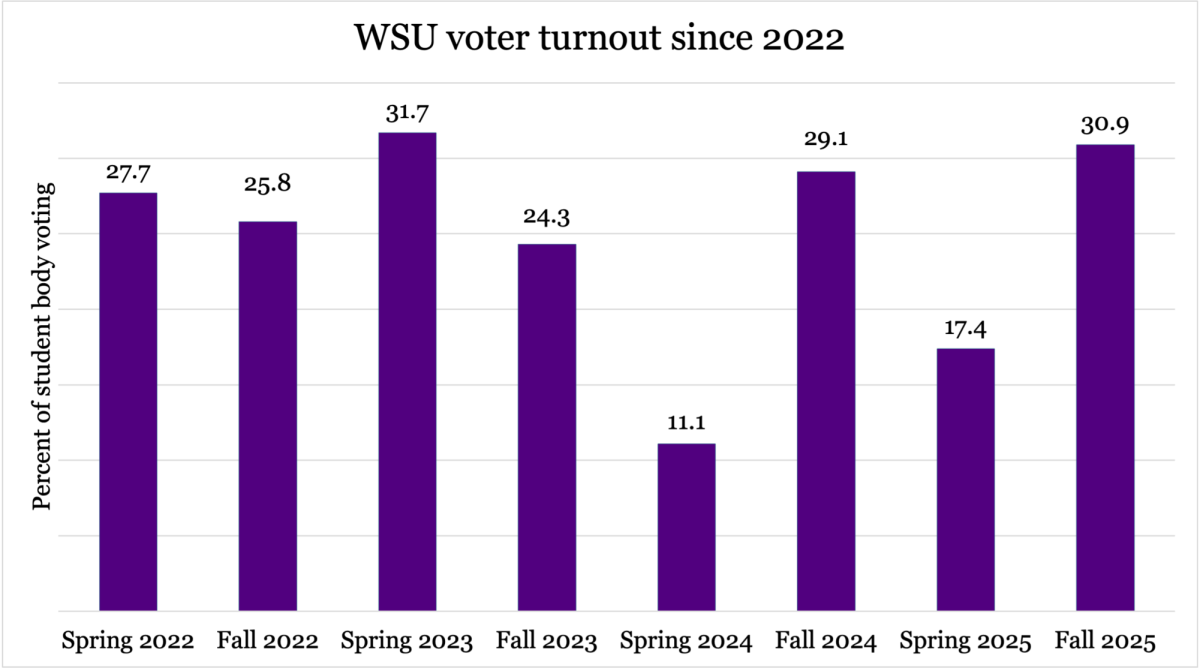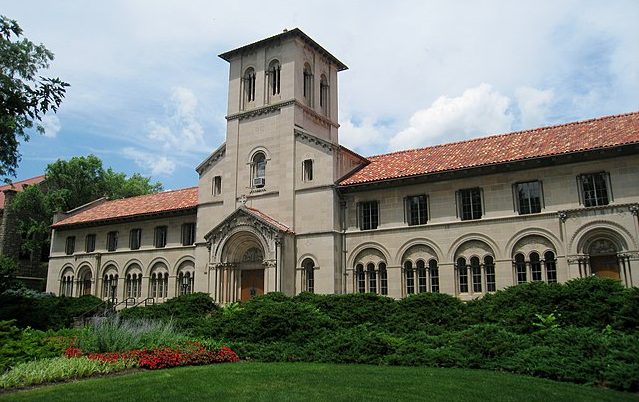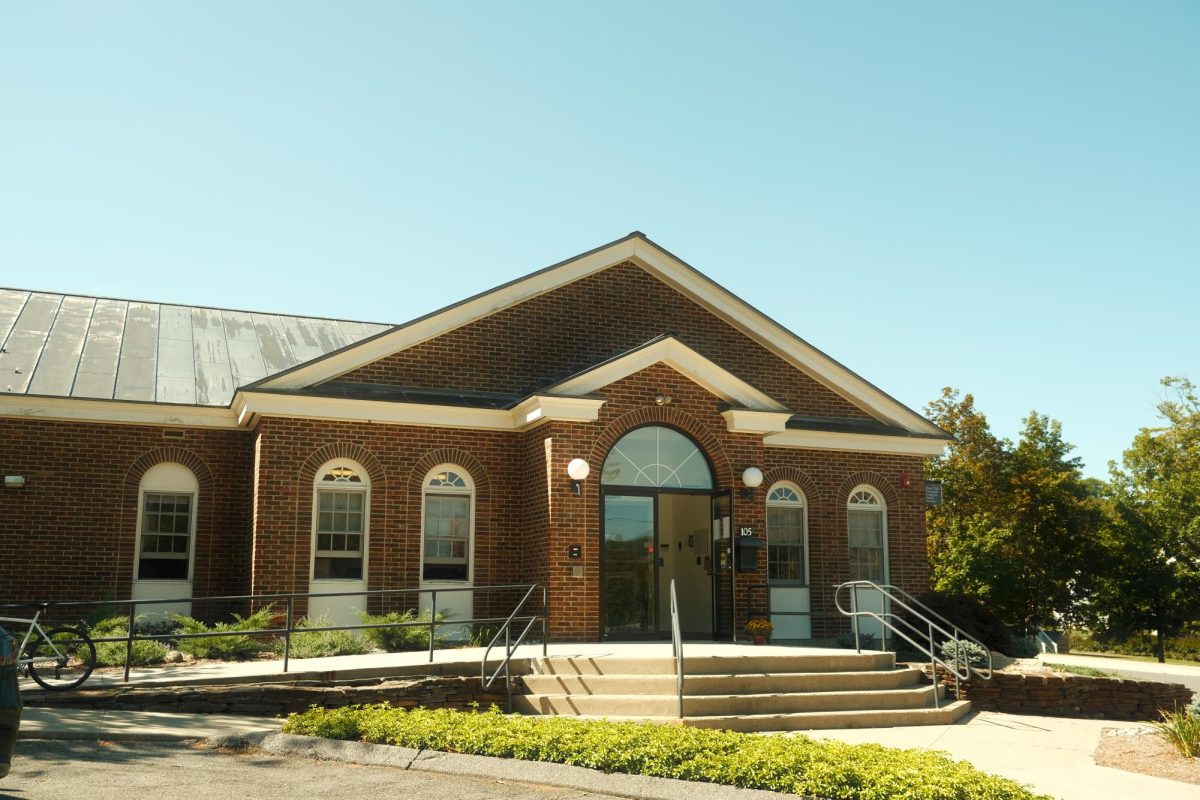The proportion of professors who teach Winter Study has been in decline for decades, a Record investigation found. Soon, depending on the results of a faculty meeting this evening, professors may no longer be required to teach Winter Study at all.
“My sense is Winter Study is broadly popular with students, and considerably less so with faculty,” Professor of Political Science Mark Reinhardt said in an interview with the Record.
“I’m sympathetic to the people who, in the late 1960s and early 1970s, created Winter Study as a general expression of a desire for new ways of learning and self-exploration,” he continued. “It’s devolved into something rather less grand than that description now.” Reinhardt stressed that he, like many professors, still believes that Winter Study is valuable for students — but added that January classes are considerably less productive for professors.
In February, an ad-hoc committee identified several flaws with the existing Winter Study program. Professors teach a declining number of conventional Winter Studies, despite their contractual obligations to do so, the committee reported. As professor participation has dropped, the program has increasingly relied on staff and adjuncts — but adjuncts receive little compensation, making it difficult to recruit a diverse pool of instructors. And a lack of central administration has left many professors and staff confused and frustrated.
“I think our current Winter Study system has led to a lack of coherence, or a loss of purpose, for the month,” Professor of Political Science Justin Crowe ’03 said.
In the face of this discontent, faculty will meet this evening to discuss the future of Winter Study. The College’s first step, according to a memorandum issued by the Committee on Appointments and Promotions (CAP), would be to permanently relieve all faculty from their obligation to teach typical Winter Study courses. The ad-hoc committee also recommended that the College hire a full-time administrator to oversee the January term.
The faculty meeting this evening marks the start of a plan to “launch a fully refreshed Winter Study by January 2026,” according to the CAP memo. The details of what a refreshed Winter Study Program might look like have not yet been determined, and discussions will continue among senior staff and faculty.
Faculty participation in Winter Study declines
Since Winter Study’s inception in 1969, professors have been contractually obligated to teach a Winter Study course every other year. But an increasing number of professors have received exemptions from this obligation, according to multiple professors and administrators. The pandemic exacerbated the decline: In 2021, the College released dozens of junior faculty from the instructional requirement. Following the pandemic, professor participation in the program has continued to drop.
As a result of the proliferation of Winter Study teaching exemptions, only 40 of the College’s 342 instructional faculty will teach travel or seminar courses this January. In 2022, faculty taught only 25 conventional Winter Study courses, according to the adhoc committee report.
“Among my faculty colleagues, I find a fair amount of frustration with teaching Winter Study,” Professor of Political Science Sam Crane told the Record. “Because there’s general dissatisfaction with Winter Study, many faculty will find many different ways of getting out of it.” Common alternative means of obtaining Winter Study instructional credit include serving as a department chair; advising senior theses and Winter Study Independent Projects; teaching January intensives; and serving on an administrative committee.
“In principle, we teach Winter Study every other year,” Reinhardt said. “In practice, release from Winter Study is the smallest significant unit of bribery at Williams College.”
In interviews with the Record, several professors said they taught Winter Study as infrequently as possible. Some professors, according to the course catalog, have taught Winter Study courses less than once a decade.
“When you’re a chair of a department, you really don’t have the time to teach Winter Study,” Crane said. Department chairs typically spend January compiling course catalogs and fulfilling other administrative tasks. “And in the grander scheme of things, how valuable of a teaching experience is Winter Study?”
“I’ve had endless Winter Study course releases,” Reinhardt said. “I think of Winter Studies by presidential administrations, because there tend to be big gaps between when I do it.”
The exemptions have not been evenly allocated, causing some professors to teach Winter Study far more often than others. “The longstanding system through which College faculty are contractually obligated to teach Winter Study every other year has attenuated to the point that Winter Study teaching duties are not distributed evenly among the faculty,” the ad-hoc committee reported.
A lack of central administration has contributed to falling faculty participation, according to the report. Unlike faculty leave patterns, the Dean of Faculty’s office does not keep track of which professors are due to teach Winter Study during a given year. Instead, chairs of academic departments are charged with recordkeeping — but chairs often do not know which professors have received exemptions. In interviews, several professors said that they weren’t sure how academic leave, specific promotions, or fellowships affected their teaching obligations.
“The process is pretty haphazard,” Crane said.
Additionally, professors are not assessed for promotion based on their performance in Winter Study. “When we evaluate a junior faculty member for tenure or evaluate an associate professor for promotion, Winter Study doesn’t play into that at all, because we don’t know how any professors did in Winter Study,” Crowe said. Students do not fill out course surveys for professor-taught Winter Study courses.
If the CAP’s proposal is adopted, teaching typical Winter Study classes would become optional for faculty, ending the years-long increase in unevenly administered exemptions.
If participation becomes voluntary, the ad-hoc committee suggested that professors who teach Winter Study receive a “modest financial incentive.” But the CAP memo does not include such financial incentives.
“Classes are pretty laughable”
In interviews with the Record, many professors said they felt disillusioned by their experiences teaching Winter Study.
“I have tried to teach a regular academic course [during Winter Study],” Professor of English Bernie Rhie said. “The first year I was here, I taught Proust’s In Search of Lost Time, where we read the first volume or two of that seven-book novel, and it was okay.”
“But I think a lot of students are hungry for something different from the standard academic experience,” Rhie continued. “And so I quickly figured out that trying to teach a standard academic course in that environment wasn’t the best idea.”
Other professors reported similar experiences. During his first Winter Study, Crane designed a class covering the origins of the Korean War. The course syllabus included two books. “For the first week, my students were with me,” he said. “But just gradually, everything was melting away. They weren’t getting all the reading done. Their heads weren’t in it.”
“So I quit,” Crane continued. “I quickly realized that this was not in the spirit of Winter Study. So I found three Korean War movies to watch, because that’s what you do.”
For his subsequent Winter Study courses, Crane said he lowered his expectations. “One of the key tenets of Taoism is wu wei: Do nothing,” he said. “I thought, well, that’s in keeping with the spirit of Winter Study.”
Rigorous Winter Studies can be successful, several professors noted. But those classes are the exception, rather than the rule.
“I taught a travel Winter Study course over 20 years ago that was insanely demanding and rigorous, and it was one of the really pleasurable and valuable teaching experiences of my life,” Reinhardt said. He also noted that his most recent Winter Study, which focused on Robert Moses and Jane Jacobs, had gone very well. “But most of what Winter Study is, is an excuse for people to hang out with their friends and have fun.”
“I’m all for that, but I don’t think that’s what I’m here to do as a scholar, or even as a teacher,” Reinhardt continued.
Several professors interviewed by the Record, but not all, said that the quality of papers written during Winter Study was markedly lower than those written during a typical academic semester.
“Classes are often pretty laughable,” Reinhardt said. “It’s not every student by any stretch, but in the aggregate, extraordinarily wonderful, talented, creative, serious students are sort of princes who turn into frogs when it comes to writing Winter Study papers.”
Professors attributed their students’ lackluster performance during Winter Study to a variety of factors, including the unusually short length of winter break, high workloads during the fall and spring semesters, and ubiquitous Pass/Fail grading.
“I think students, for the most part, don’t want to be doing the same level of work during January,” Crowe said. “It makes sense to me. I don’t begrudge anyone wanting a break.”
Confronted with low student interest in typical academic Winter Studies, many professors have instead opted to teach experiential courses, like meditation and journaling. But experiential courses, while often easier to plan and teach, often fall outside of professors’ areas of expertise.
“I’m not trained, and I’m not by temperament, a ‘Let’s go have an experience’ person,” Crane said. “I don’t do experiential. I’m just not that guy. And many of us aren’t.”
Many professors said that they preferred to spend January working on research and preparing their spring semester courses. “Winter Study is… set just perfectly to frustrate any kind of attempt to get back to your research and writing,” Crane said.
“I enjoy teaching Winter Study, and I have had fun,” Professor of Theatre Amy Holzapfel told the Record. “But in my case, it’s not fulfilling my scholarship. It’s not filling my own research agenda.”
The rise of non-faculty instructors
As professors move away from Winter Study instruction, the College has invited an increasing number of staff and guests — including alums, spouses of faculty, and local community members — to teach courses in January. Of the 123 travel- or classroom-based Winter Studies offered this year, 84 will be taught by non-faculty instructors. And if faculty are formally released from their teaching obligation, the College may become still more dependent on adjuncts and staff.
But there are several shortcomings with the current adjunct recruitment and orientation process, according to the committee report.
Currently, classes taught by adjuncts must be sponsored by academic departments, creating another administrative task for department chairs to oversee. “It’s very, very stressful, because we have no real way of knowing what these people are like in the classroom,” Chair and Professor of History Roger Kittleson said. Every chair interviewed by the Record described a different method by which their department identified adjunct classes to sponsor.
Numerous barriers make becoming a Winter Study instructor difficult, including low compensation. The College currently pays guest instructors up to $3,450 to teach Winter Study. “This level of compensation certainly presents an obstacle to some potential adjuncts,” the ad-hoc committee wrote.
Other adjunct instructors said they had trouble finding housing in Williamstown, even with compensation. “This problem restricts the pool of adjuncts and constrains diversity within that group,” the committee wrote.
Staff also face challenges when teaching Winter Study. Like professors, some full-time staff are contractually required to run courses in January, and do not receive additional compensation for doing so. “Current [staff] instructors express some frustration that the time they spend in preparing and teaching courses is uncompensated and unrecognized, and often done while they are managing their regular responsibilities,” the report wrote.
Staff members interviewed by the Record said they enjoyed teaching Winter Study and found it helpful for their units’ goals — though they noted that the instructional workload was considerable.
The ad-hoc committee recommended that the College hire a full-time director to help address concerns over staff and adjunct instruction.
Reflecting on 54 years of Winter Study
Robert Schwed ’71 attended the College during its first-ever Winter Study. He has since returned regularly to serve as an adjunct instructor, most recently in January 2023.
Winter Study — with its emphasis on unconventional classes and academic exploration — remains similar to its original 1969 incarnation, according to Schwed. The most notable change, he said, was the shift away from professor-led classes and toward adjunct instruction. “That clearly was not done years ago,” Schwed said.
Adjunct instructors bring many skills to the table, Schwed noted. However, he observed that many adjuncts do not have experience as professional educators.
When asked what he thought would happen if Winter Study came to rely more heavily on adjuncts, Schwed stated: “It won’t be as good. It can’t be, because there’s not enough talent to think that the adjuncts can do everything full professors can.”
Senior staff will continue to work with faculty to revitalize the Winter Study Program, according to the CAP memo.



